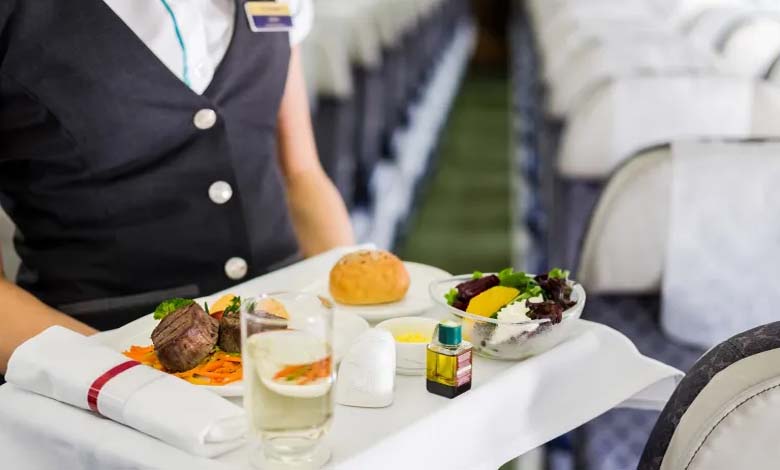Why Does Food Taste Different on Airplanes?

If you’ve noticed that food loses its flavor during a flight, you’re not alone in feeling this way; multiple factors affect our sense of taste at 30,000 feet.
-
Plastic in Our Plates: Foods Becoming a Health Threat
-
5 Foods to Boost Energy and Ease Winter Fatigue
The environment inside the airplane plays a significant role in this change. The low humidity in the cabin directly affects our sense of smell, which reduces our ability to taste food properly.
Studies have shown that the reduced air pressure affects oxygen levels in the blood and dries out the nasal passages, reducing the sensitivity of taste buds by up to 30%.
Additionally, noise and vibrations within the airplane affect flavor perception. It has been proven that loud noise diminishes taste sharpness, making food seem less appealing.
-
“Fatty Meats” in the Spotlight: The Most Harmful Foods for the Liver
-
5 Reasons Why Blueberries Are Among the Best Health Foods
To overcome these challenges, airlines are working to improve food recipes by adding strong spices and ingredients with rich flavors. However, some foods, such as tomatoes and dishes rich in umami, retain their taste better in the air.
As for improving the dining experience while flying, experts recommend using noise-canceling headphones, choosing foods with bold flavors, and staying hydrated by drinking enough water. You can also bring protein-rich snacks to avoid hunger during long flights.












